Meet the young chefs competing for the S.Pellegrino Social Responsibility Award 2024-25
15 regional winners will have the chance to take home one global prize.
Ahead of the S.Pellegrino Young Chef Academy Competition 2024-25 Grand Finale, taking place in Milan in October, a further three prizes, known as the collateral awards, will be announced.
Alongside the Fine Dining Lovers Food for Thought Award, which you can vote for, and the Acqua Panna Connection in Gastronomy Award, voted for by the competition mentors, is the S.Pellegrino Social Responsibility Award, voted for by The Sustainable Restaurant Association (SRA). This is awarded to the young chef whose signature dish best exemplifies the use of sustainable practices.
"It's clear that putting luxury on the plate often comes at a significant cost to both people and planet. It’s time for a new definition of what fine dining means in the 21st century – and the upcoming generation of chefs is ready to bring a fresh mindset to the high-end kitchen," says The SRA.
15 young chefs, who have already won the S.Pellegrino Social Responsibility Award in their respective regions, will hope they have done enough to impress The SRA and take home the global prize. No further cooking is required. Discover who they are and their signature dishes, below, and if you want to know more about what these young chefs have to say on how fine dining can truly embrace sustainability, head to The SRA website.
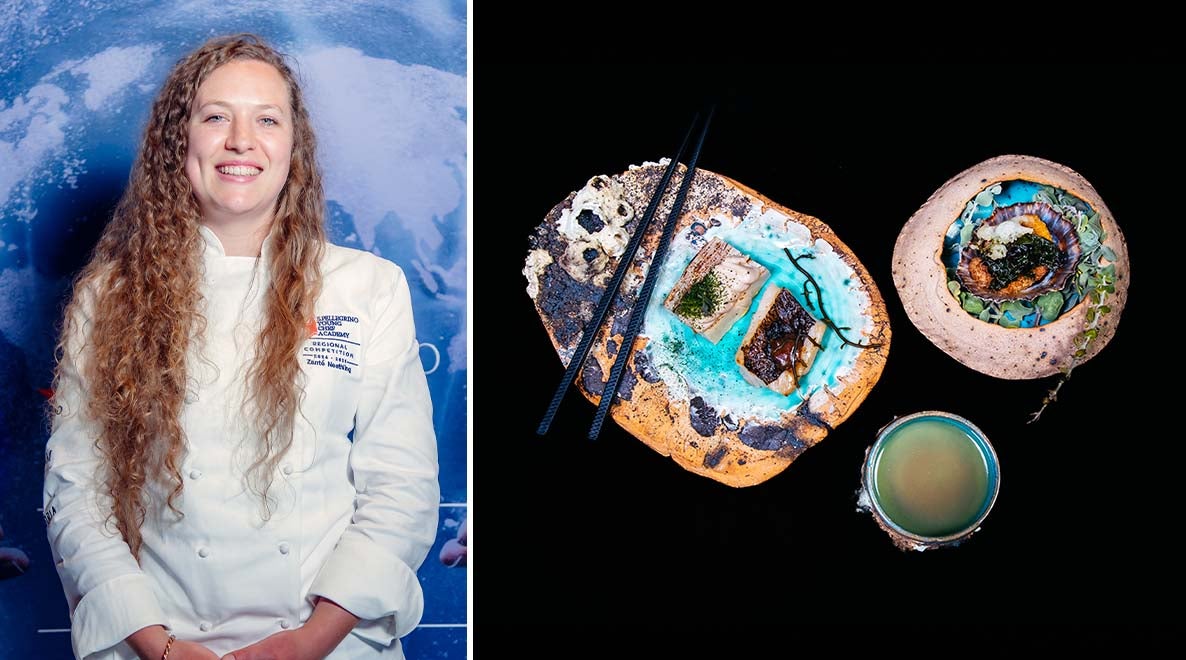
Zante Neethling, representing South Africa, will be competing with her dish, Tribute to the Khoi-Khoin Taras, a creation designed to “convey the unique diversity of South African indigenous healing plants” according to the chef, who was also a global finalist for the same prize at the last edition of the competition. Neethling is currently Executive Sous Chef at Beyond restaurant in Cape Town.
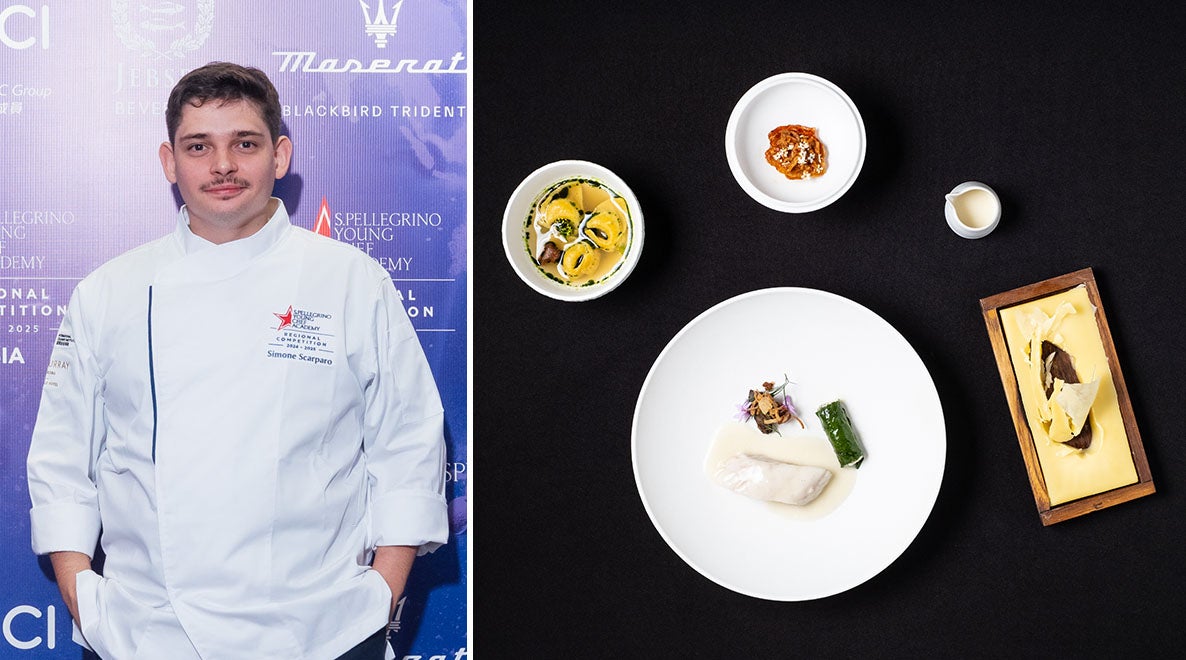
Simone Scarparo, representing Thailand, won his regional title with the dish, Hidden in the Beeswax. Scaparo is the co-founder of the restaurant Luna by Clara, which is scheduled to open in Koh Samui, Thailand this year. His dish was inspired by a visit to a bee farm and seeing unused beeswax being discarded. “Using locally sourced fish, I perfected a beeswax cooking method for the fillet and transformed every part of the fish into unique components,” says the chef.
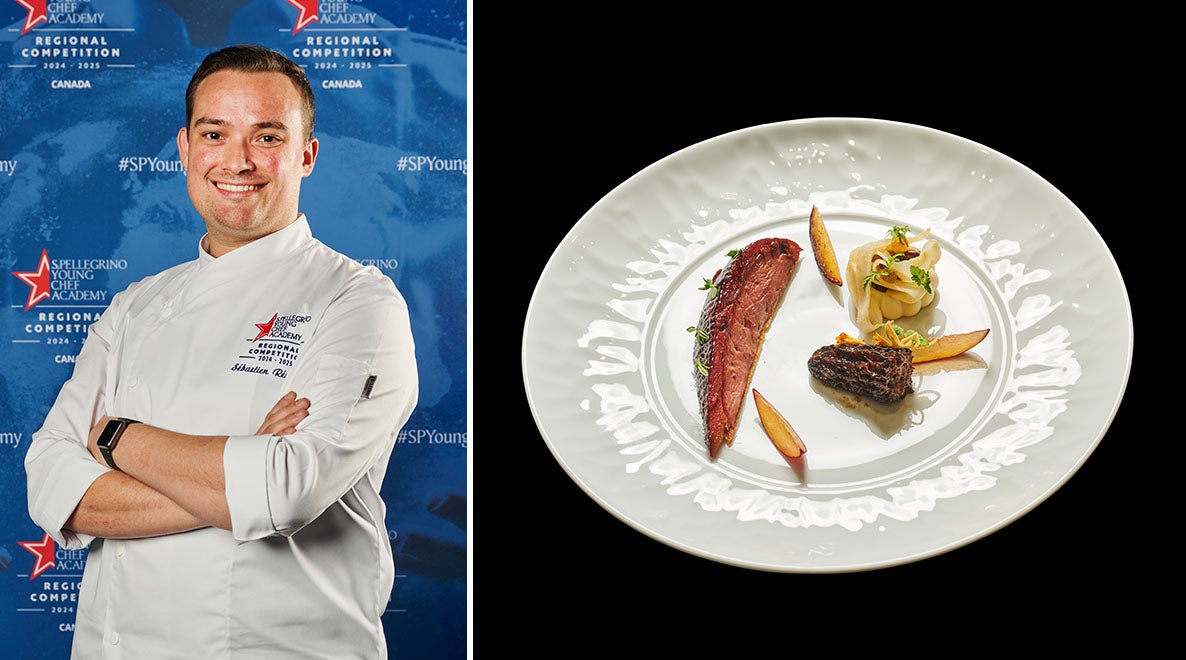
At the Canada Regional Final, the S.Pellegrino Social Responsibility Award went to Sébastien Rémillard for his dish, The Evolution of My Life. “Cooking, for me, is love and passion, rooted in respect ¬– using every part of ingredients, minimising waste, letting flavours shine,” says the chef of his sustainable philosophy. He’ll also be hoping to shine by claiming this highly competitive prize.
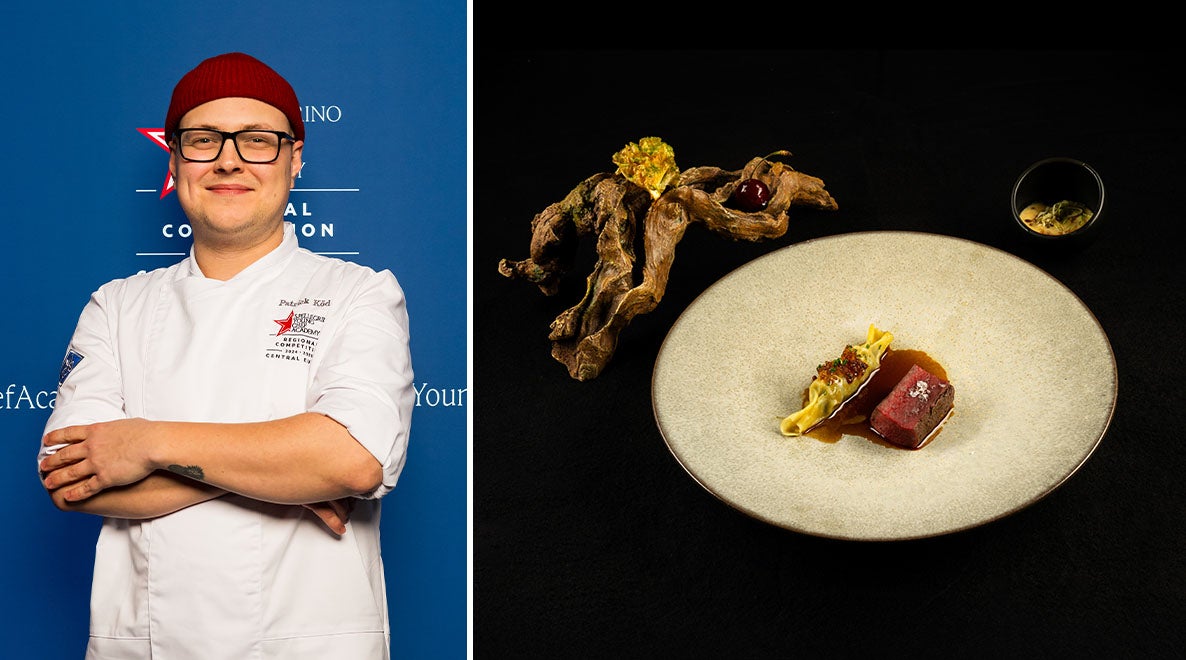
Patrick Ködel, representing Germany, will be competing with his dish, Heart of the Mountain. “We need to encourage kids to engage in gastronomy. Let's show the next generation the joy of serving guests dishes made from locally-sourced ingredients, fostering connections with friends in the local farming community,” says the young chef of his inspirations.
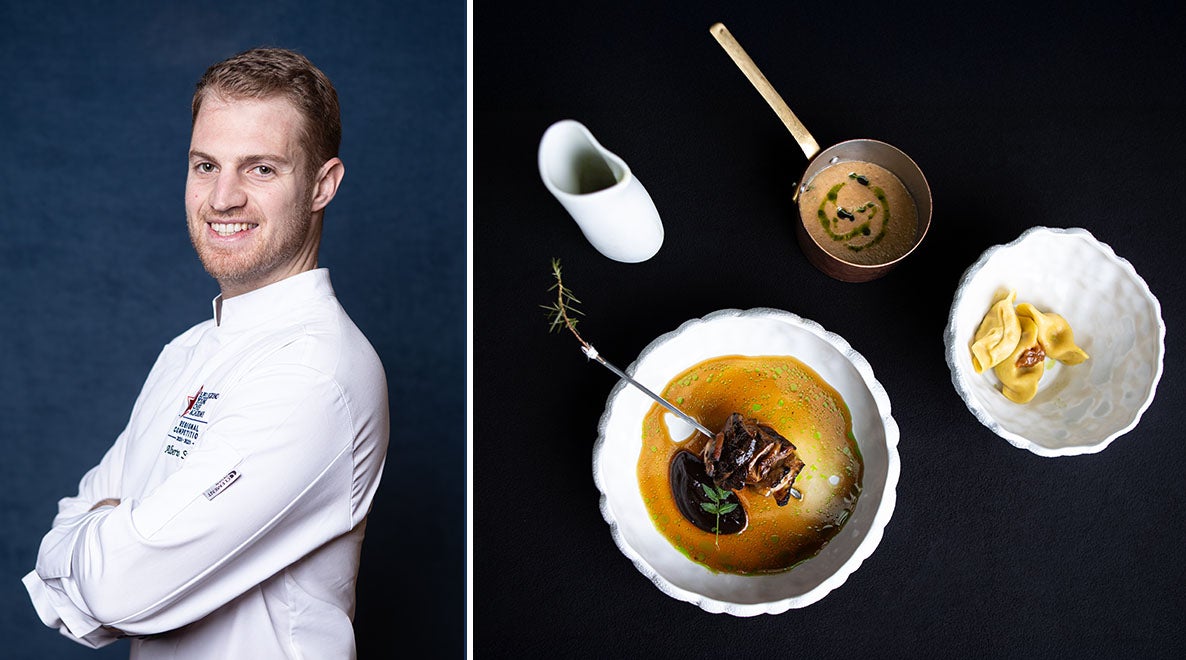
The winner of the S.Pellegrino Social Responsibility Award for France is Alberto Suardi. His dish, Wild and Roots, based on mushrooms, also has a no waste onion soup with toasted bread as an element, a “homage to France” says Suardi, who is Executive Chef at the Big Mamma Group of restaurants. Another element is the casoncelli – pasta stuffed with scraps from the soup.
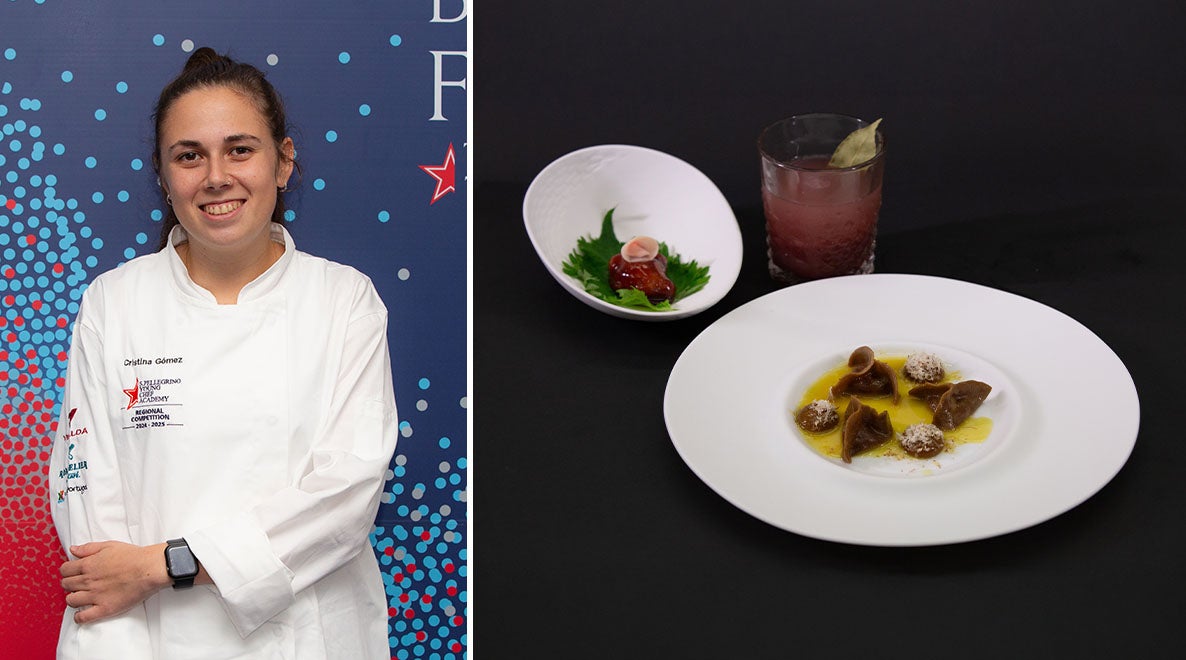
Cristina Gómez Manarel, representing Spain, won the S.Pellegrino Social Responsibility Award for the Iberian Countries. The young chef from Fierro restaurant in Valencia cooked a lamb dish inspired by her Italian-Granadian roots and her values, which are “Love for the profession, respect for the raw material and environmental sustainability,” she says.
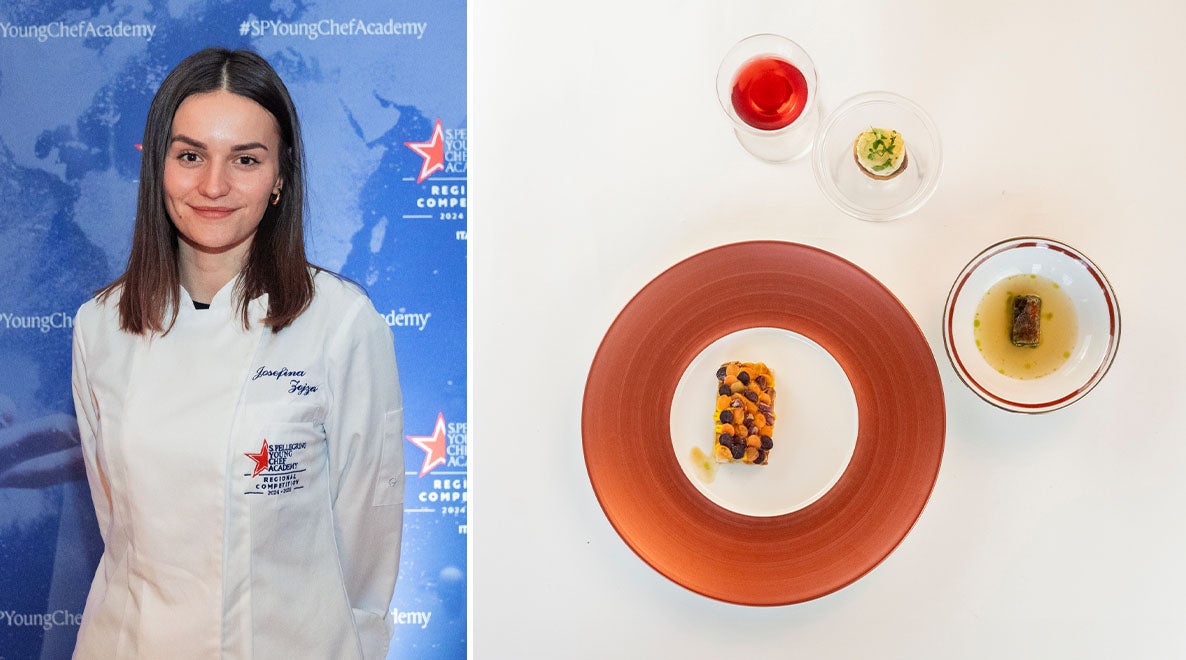
Young chef Josefina Zojza, who works at Locale, in Florence, will compete for Italy. Her dish, Trota Puccini, is based on Casentino trout, a species unique to Tuscany. “I really wanted to pay homage to it in all its facets, using every part of it in the name of sustainability and reducing waste,” she says. “The concept of territory is an important thing when I think about creating a dish. I owe a lot to Tuscany.”
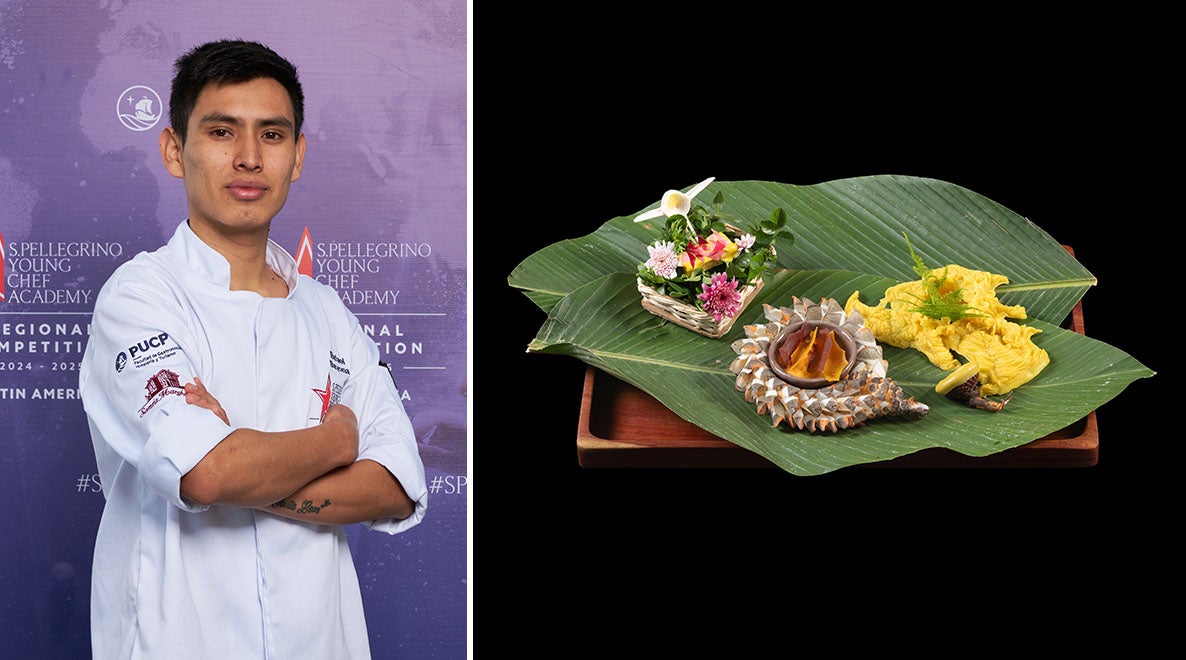
Rafael Bayona, representing Peru, won the S.Pellegrino Social Responsibility Award for Latin America & Caribbean. The young chef, who cooks at one-time World’s Best Restaurant, Central, in Lima, impressed with his dish, Amazonas, highlighting Amazonian ingredients and techniques. “People who live in the cities feel that the Amazon is a distant topic. But that is not the case, we are closer to it because it is a source of carbon and regulator of global climate changes,” he says.
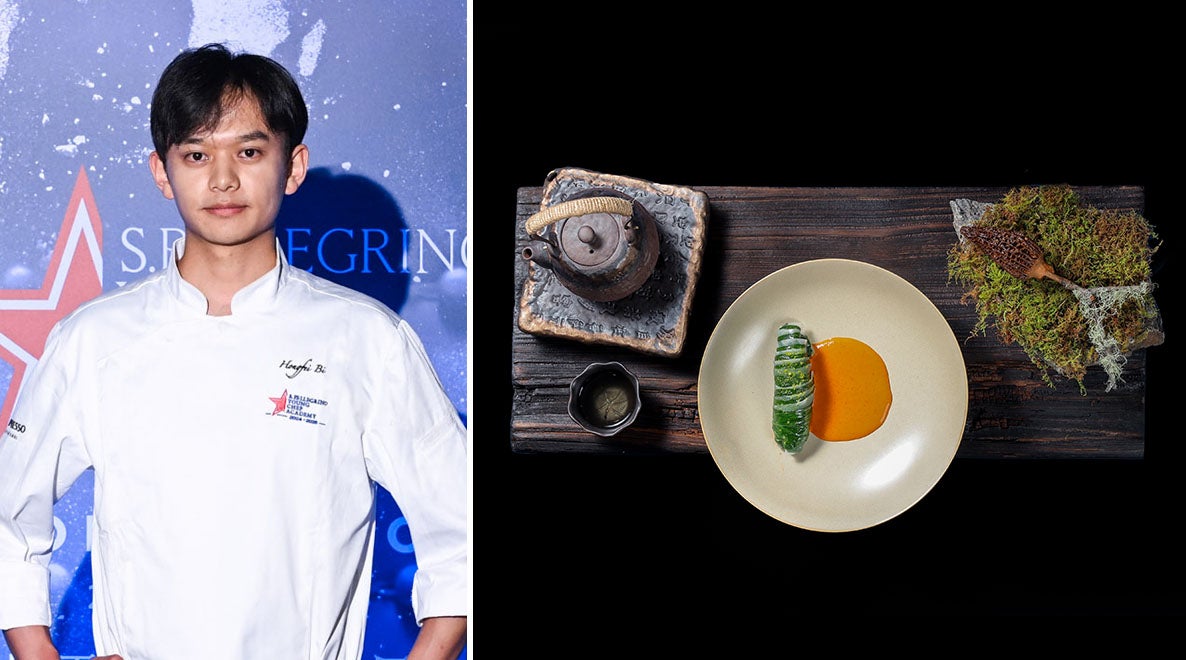
Competing for the Mainland of China region will be Hong Fei Bi, with his vegan dish, Suzhai. The young chef says he was inspired by traditional Chinese medicine to create a dish “embodying the concept of food and medicine sharing the same origin,” using “medicinal herbs such as Poria cocos, japonica rice, Gastrodia elata and Phyllanthus emblica as the main ingredients, complemented by traditional handcrafted tea.”
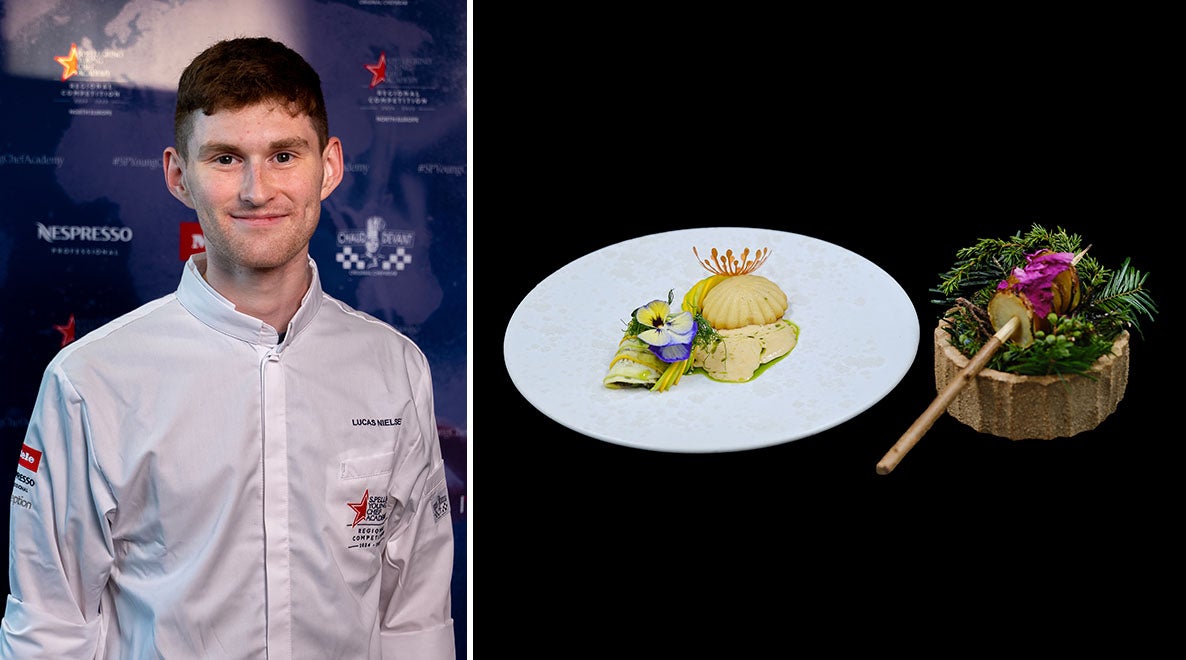
Lucas Nielsen, representing Denmark, will compete for the North Europe region. His vegetable-forward dish, Up for a Change?, is designed to highlight the need to reduce meat consumption. “As Denmark increasingly focuses on green energy and combating climate change, reducing the consumption of mass-produced meat becomes essential to lower the CO₂ index. Through my dish I want to contribute to this change and adapt to a more sustainable future,” says the young chef from Treetop restaurant in Vejle.
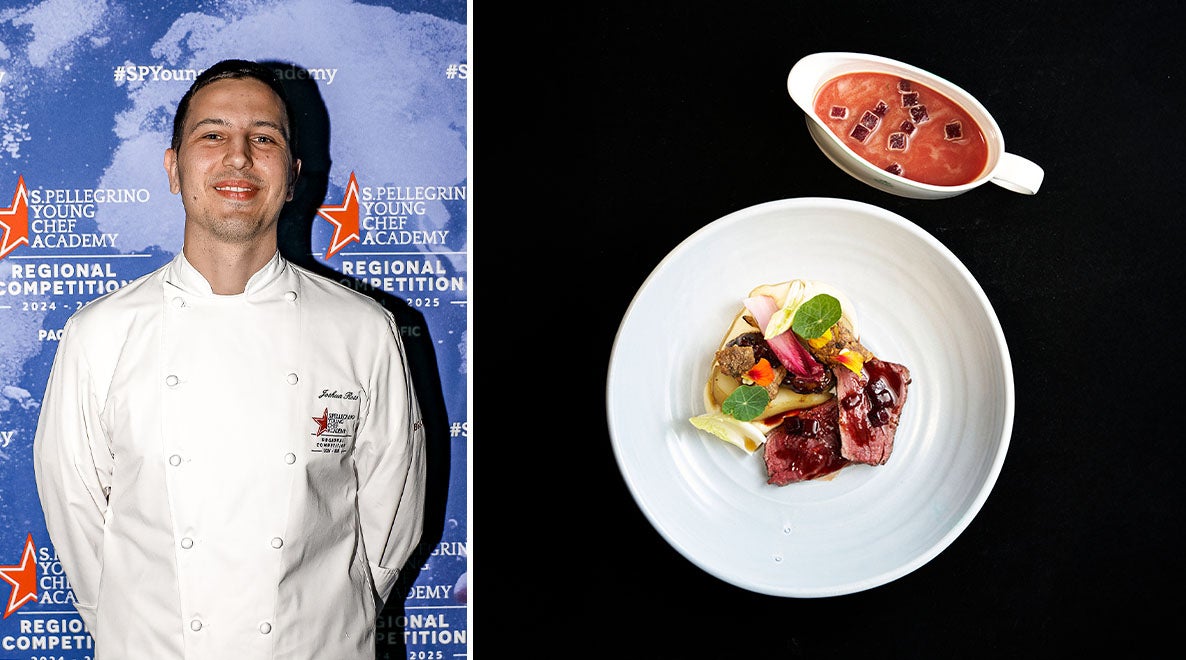
Joshua Ross, representing New Zealand, picked up both the S.Pellegrino Social Responsibility and Acqua Panna Connection in Gastronomy Awards at his Regional Final. The young chef from Bellamys in Wellington has this to say about his dish of wild venison, artichoke and smoked deer milk puree, offal crepinettes, endive leaves, grilled quince and beetroot jus: “In New Zealand we have a large number of introduced pests like wild deer that damage our native flora and fauna. By using wild venison we can create an economy for conservation by giving a financial incentive for pest control.”
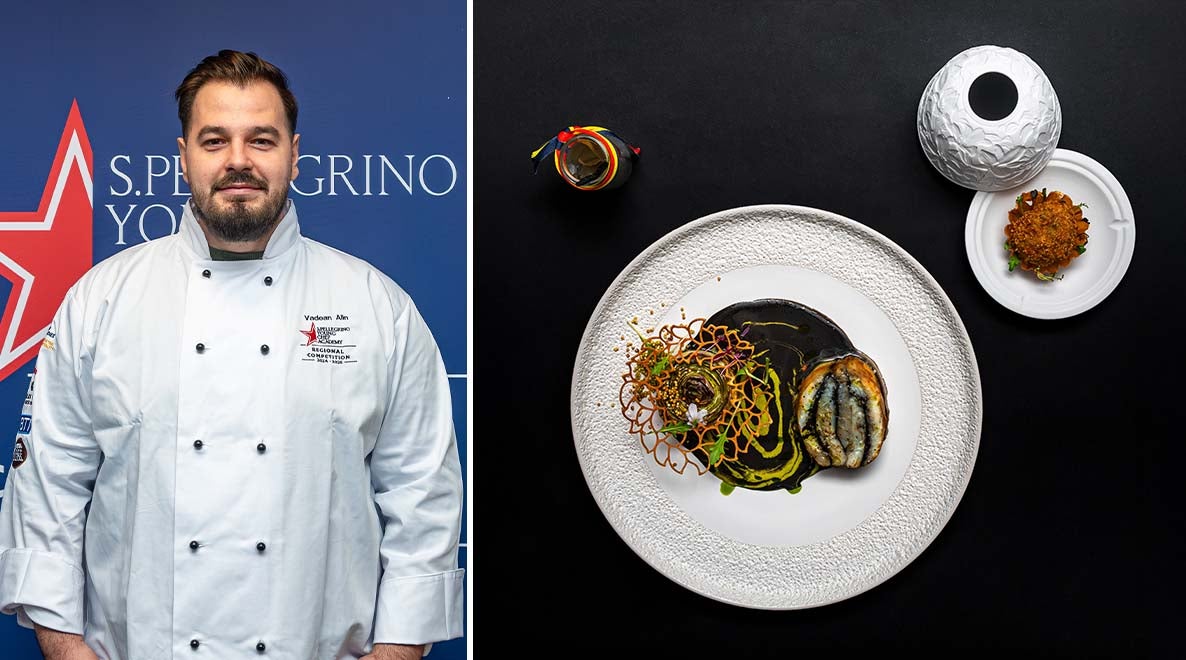
Vadean Alin, representing Romania, will compete with his dish, Through the Eyes of a Fish, which he says is a “manifesto” and a “plea for sustainability and responsibility.” He continues: “Water pollution, food waste and climate change are just a few of the urgent issues demanding our attention. These are not just statistics; perhaps the Earth is sending us a message, urging us to return to essentials. Now, more than ever, we need to remember this simplicity and cook with conscience.”
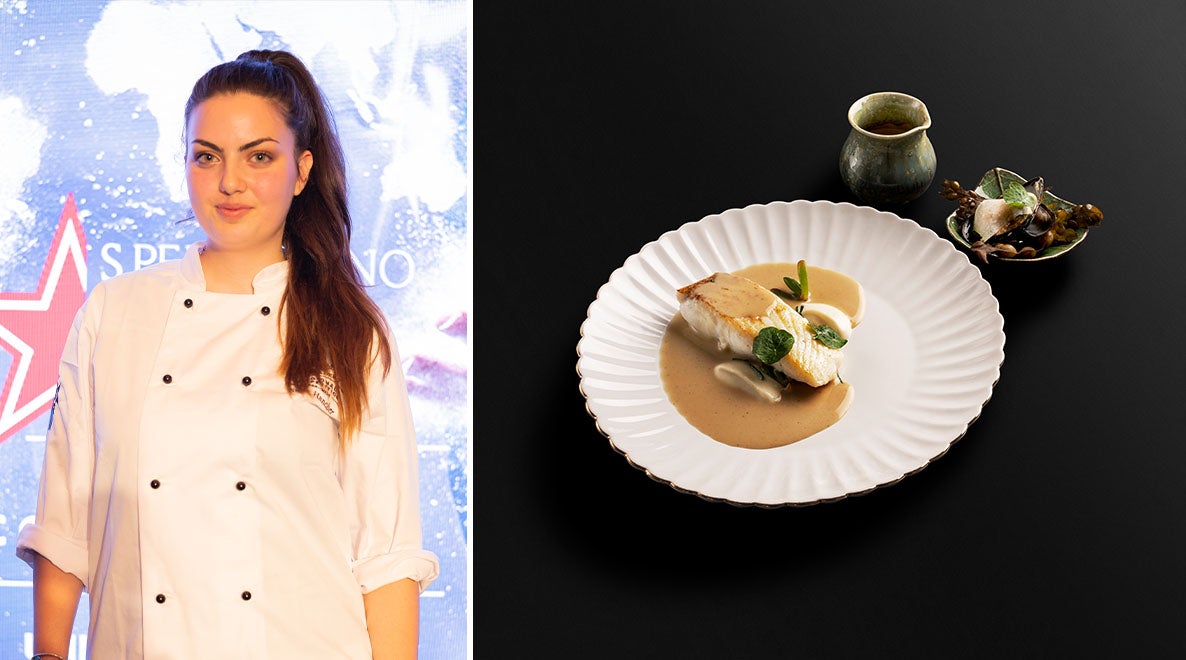
Sude Hancher was the winner of the S.Pellegrino Social Responsibility Award for the UK and will compete with her dish, Cauliflower and Halibut, which features a fish caramel made from the bones of the halibut and a “nice creamy cauliflower puree with vanilla, blended until smooth.” The dish also features a halibut cheek tartare, further demonstrating how different parts of the fish can be utilised to cut down on food waste.
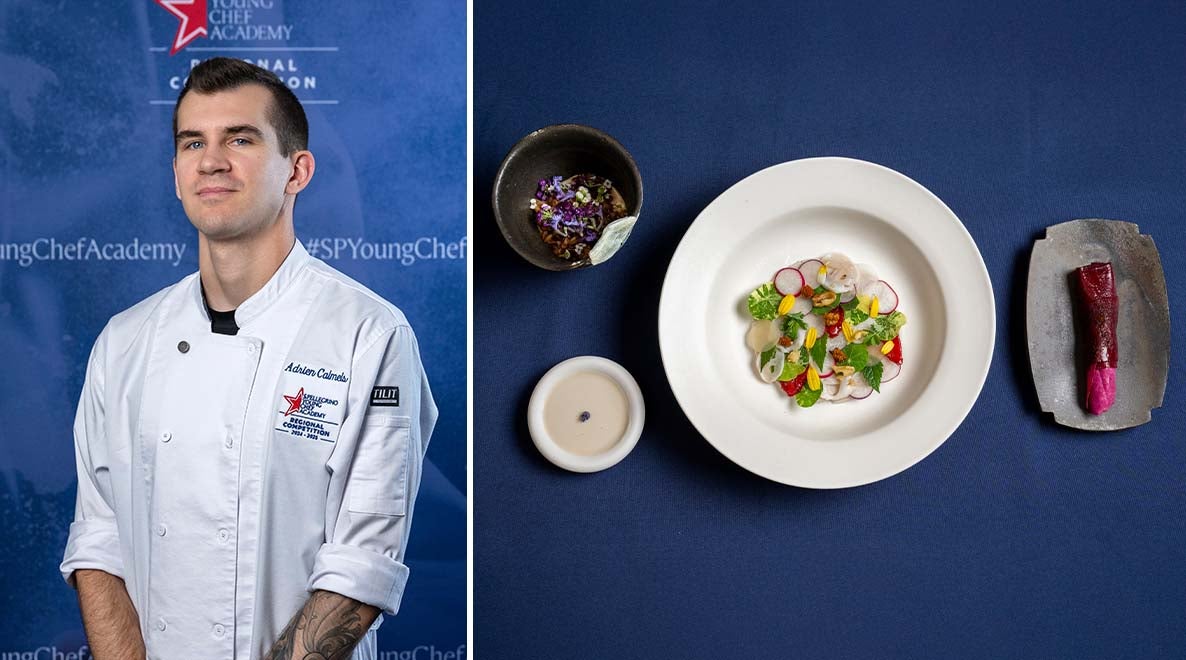
Adrien Calmels was another double winner, picking up the S.Pellegrino Social Responsibility and Acqua Panna Connection in Gastronomy Awards at the USA Regional Final. The young chef from Okta restaurant impressed with his dish, Summer in Oregon, which “showcases the region's bounty and the resilience of its people,” blending “floral and coastal flavours, sourced locally and ethically, to celebrate and promote environmental preservation.”
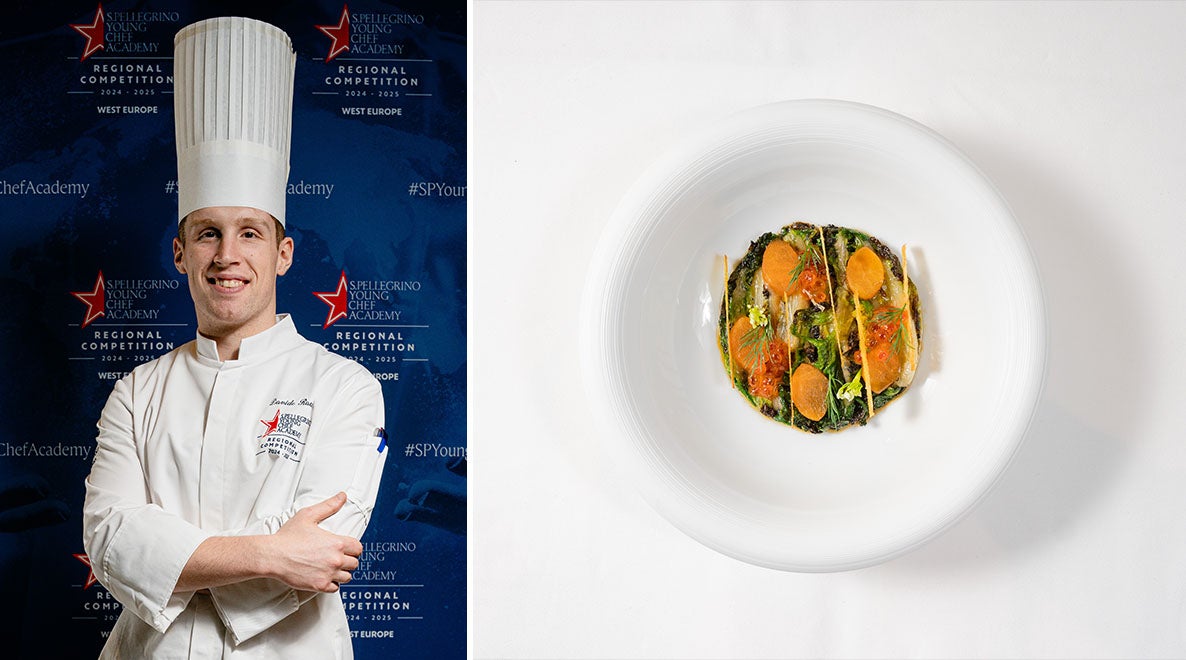
Davide Rauco, representing Switzerland, will compete with a dish of barbecued lettuce, apricots, leaks, roots and salmon roe, which is designed to showcase how a simple ingredient like lettuce, if prepared properly, can star. “Another important message this dish gets across is that of using all parts of a product… from the cooking liquid that becomes a vinaigrette to the daikon waste that becomes kimchi,” says the young chef.

